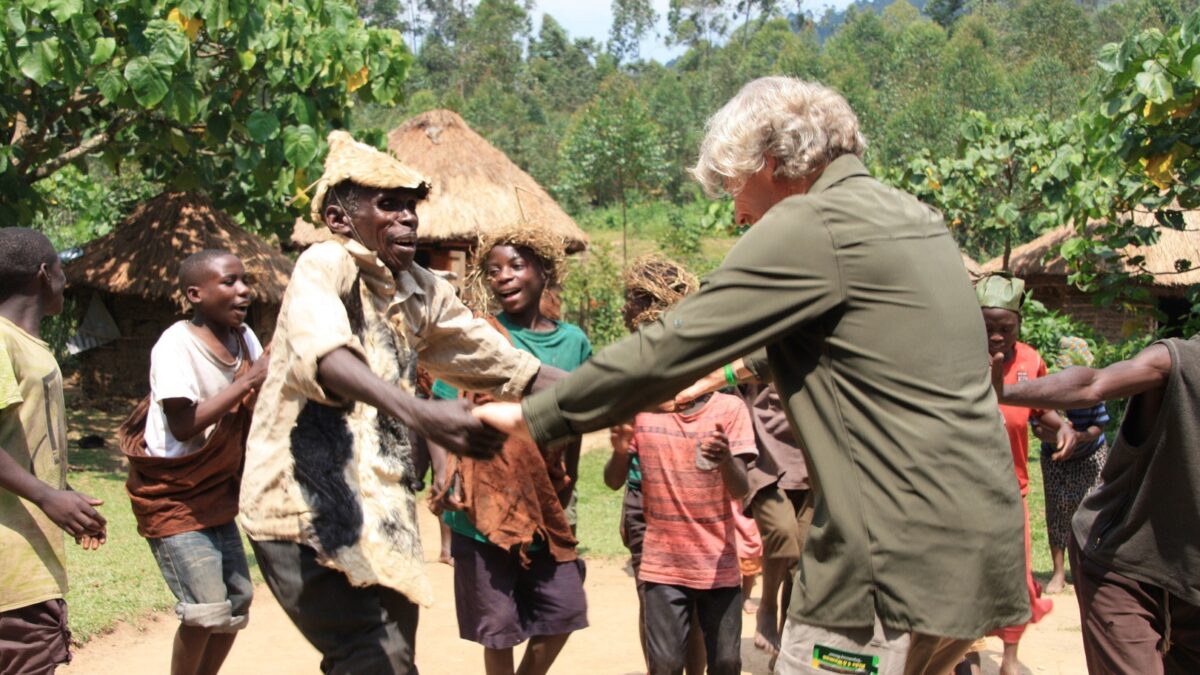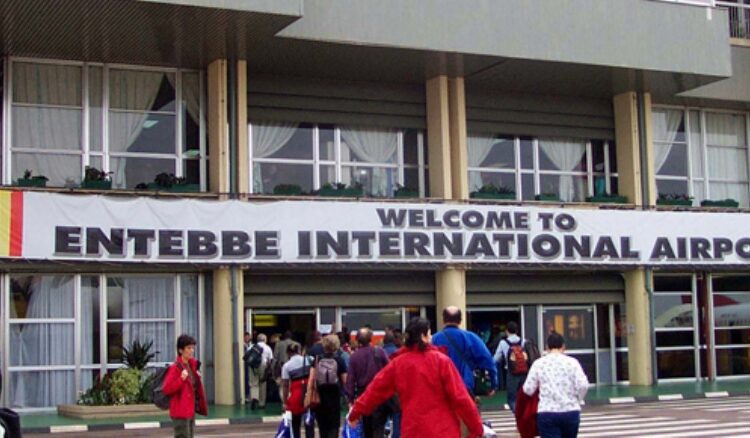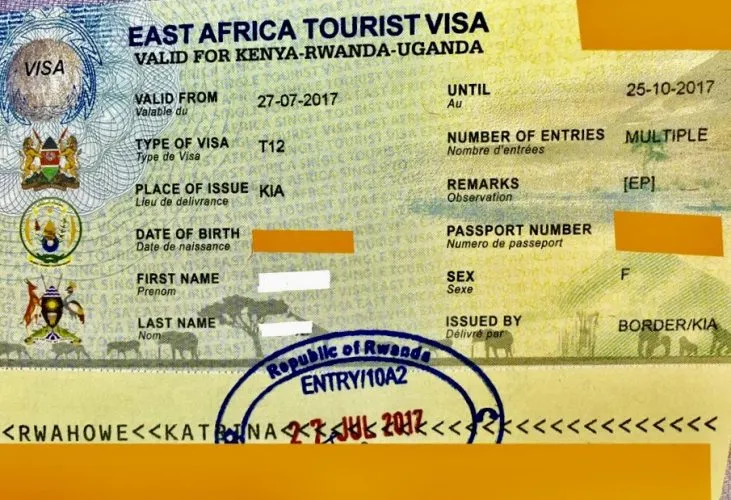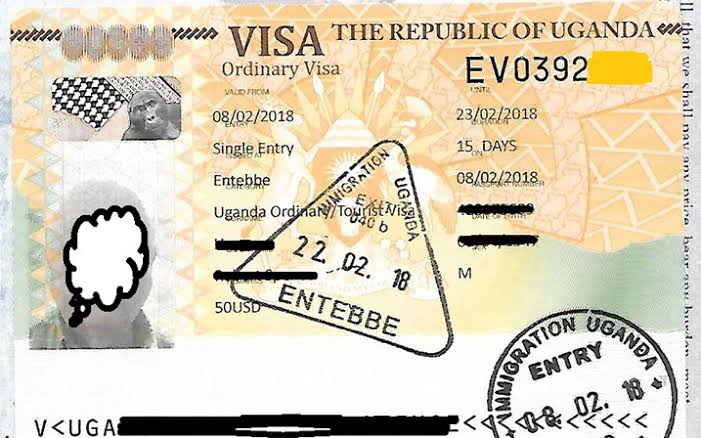
Daily Life in a Ugandan Village | Experiya Tour Company
October 29, 2025
Is Tipping Expected in Uganda? | Experiya Tour Company
October 29, 2025How Do I Greet Locals in Luganda?
Uganda, the Pearl of Africa, is a country celebrated not only for its breathtaking natural beauty and wildlife but also for its warm, welcoming people. Nowhere is this friendliness more evident than in the way Ugandans greet one another. Among the many languages spoken across the country, Luganda stands out as one of the most widely used — especially in the central region, where the capital city Kampala lies. Learning a few words of Luganda before visiting Uganda can open doors, spark smiles, and create instant connections with locals.
Whether you are wandering through the busy streets of Kampala, exploring the serene shores of Lake Victoria, or visiting a rural community, knowing how to greet in Luganda is more than just politeness — it’s a gesture of respect and friendship. This guide explores the art of greeting in Luganda, explaining common phrases, when to use them, and the cultural meaning behind these everyday expressions.
Understanding Luganda – The Language of the Baganda People
Luganda is the language of the Baganda, Uganda’s largest ethnic group, who inhabit the central region known as Buganda. It is also one of the country’s most widely spoken languages, serving as a lingua franca for millions of Ugandans.
While English is Uganda’s official language and Swahili is increasingly used for trade and regional communication, Luganda remains the heart language of central Uganda. It carries not just words but traditions, etiquette, and identity.
The Baganda are known for their deep sense of respect and formality in communication, especially in greetings. In Buganda culture, greetings are not rushed. They involve inquiries about one’s health, family, work, and wellbeing. It’s a way of showing that you care — that the person you’re speaking to matters.
Why Greetings Are Important in Ugandan Culture
In Uganda, greeting is more than a courtesy; it’s a cultural ritual. Failing to greet someone before starting a conversation can be considered rude or dismissive. A proper greeting sets a tone of mutual respect and goodwill.
Whether you’re meeting a shopkeeper, entering a village, or visiting a family home, taking a moment to greet properly makes a positive impression. Ugandans often say that a greeting costs nothing but is worth everything.
In Luganda-speaking areas, greetings vary depending on the time of day, the relationship between speakers, and even the setting — formal or informal. Let’s explore the most common and useful greetings you can use.
Basic Luganda Greetings and Their Meanings
Below are some of the most common Luganda greetings, along with their meanings and responses.
1. Oli otya? – How are you?
This is the most common and friendly greeting in Luganda. It can be used for almost anyone in an informal setting — friends, neighbors, or new acquaintances.
Response:
Ndi bulungi – I am fine.
If you want to ask the person in return, say:
Ggwe oli otya? – And you, how are you?
Example conversation:
A: Oli otya?
B: Ndi bulungi. Ggwe oli otya?
A: Nange ndi bulungi. (I’m fine too.)
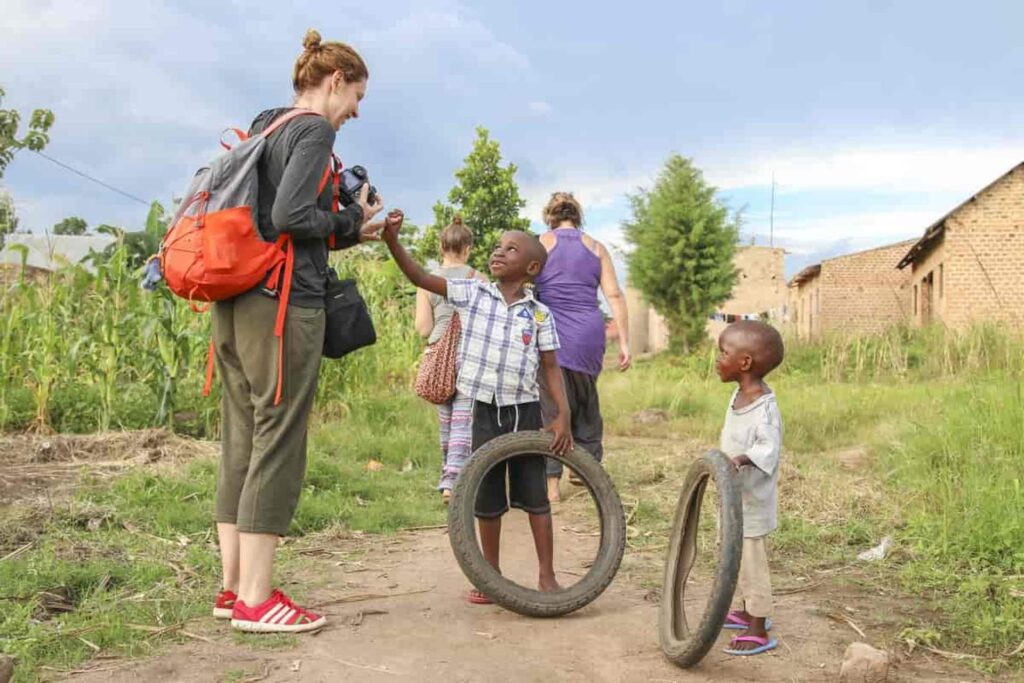
2. Gyebale ko! – Well done / Greetings for your work
This phrase is used to acknowledge someone who is busy working or doing something. It’s a polite and respectful way to greet anyone you find engaged in a task.
Response:
Gyebale ko naawe! – Well done to you too!
For example, if you walk past someone sweeping their compound, cooking, or farming, saying Gyebale ko! shows that you respect their effort.
3. Wasuze otya nno? – How was your night? / How did you sleep?
This greeting is used in the morning when meeting someone for the first time that day. It’s a friendly way to start the day.
Response:
Nasuze bulungi, naawe oli otya? – I slept well, and how are you?
If it’s later in the day, you can switch to:
Osiibye otya nno? – How has your day been?
Response: Nsiibye bulungi, naawe osiibye otya? – My day has been good, and yours?
4. Jebale ko mukwano! – Hello, my friend!
This is a casual and affectionate greeting used among friends or peers. Mukwano means “friend.” Ugandans often use this word warmly even for new acquaintances, making it a perfect phrase for travelers to use.
5. Ki kati? – What’s up? / How are things?
This is an informal greeting used mostly among young people or friends. It’s similar to saying “What’s going on?” in English.
Response:
Bulungi – Good
or Tewali – Nothing much
Example:
A: Ki kati, mukwano?
B: Tewali, oli otya?
6. Osiibye otya? / Osibye bulungi? – How has your day been?
This greeting is used in the afternoon or evening when the day is winding down.
Response:
Nsiibye bulungi. – My day has been good.
It’s a thoughtful way to show interest in someone’s wellbeing, especially if you’ve met them earlier in the day.
7. Wasuze otya? – How was your night?
This morning greeting is often used within families or between close friends. It can also be used by hosts to greet guests who stayed overnight.
Response:
Nasuze bulungi, naawe wasuze otya? – I slept well, and you?
8. Gyebale ko ssebo / Gyebale ko nnyabo – Good day sir / Good day madam
For more formal settings, such as greeting elders, leaders, or strangers, it’s respectful to add titles.
Ssebo means “sir,” and nnyabo means “madam.”
Example:
Gyebale ko ssebo! – Good day, sir.
Response: Gyebale ko naawe nnyabo! – Good day to you too, madam.
9. Weeraba / Tukulaba – Goodbye / See you later
When parting ways, Ugandans use warm farewells.
Weeraba means “Goodbye” when speaking to one person, while Mweraba is used for several people.
If you plan to meet again soon, you can say:
Tukulaba oluvannyuma! – See you later.
Response: Kale, tulaba oluvannyuma! – Okay, see you later.
Respectful Etiquette When Greeting
While learning the words is important, understanding the cultural etiquette behind greetings in Uganda makes your interactions even more meaningful.
1. Always greet first.
In Uganda, it’s polite to greet before saying or asking anything else. Jumping straight into a question or business without greeting may be seen as abrupt.
2. Use respectful tones.
When greeting elders or authority figures, speak softly and add ssebo (sir) or nnyabo (madam) as a sign of respect.
3. Shake hands.
A gentle handshake is common when greeting someone, especially in formal settings. Among close friends or family, hugs or pats on the back are also common.
4. Avoid rushing.
Greetings in Luganda are often extended conversations. People ask about your health, your family, and even your day. Taking time to respond patiently shows respect and interest.
5. Use both hands when giving or receiving items.
This gesture is considered polite and respectful, especially when interacting with elders.
6. Smile.
A genuine smile is part of every Ugandan greeting. It conveys warmth and sincerity — two qualities that Ugandans deeply value.
Common Situations and How to Greet
At a Market:
When entering a shop or market stall, greet the seller before browsing. Say Gyebale ko nnyabo or Oli otya ssebo. It’s the best way to start a friendly transaction — and often, it might even get you a better price!
At a Village Visit:
When visiting a family or village, greet each person individually if possible. Start with the elders and use both hands in handshakes. A warm Wasuze otya nnyabo? or Gyebale ko ssebo is always appreciated.
At a Hotel or Lodge:
Even though staff members may speak English, greeting them in Luganda — Oli otya? or Gyebale ko! — instantly creates rapport.
During a Community Tour:
If you’re exploring rural areas or cultural sites, your local guide can teach you region-specific greetings. However, Luganda is widely understood across much of southern Uganda, so even a few phrases can go a long way.
Why Learning Luganda Greetings Matters
Ugandans take pride in their language, and hearing a visitor greet them in Luganda often sparks joy and admiration. It shows that you respect their culture and have taken the time to learn something meaningful.
Even if your pronunciation isn’t perfect, locals will appreciate your effort and help you practice. Luganda greetings bridge the gap between traveler and local, turning simple encounters into genuine connections.
Learning a few key phrases before your trip not only enriches your experience but also deepens your understanding of Ugandan warmth — a quality that makes the country unforgettable.
Why You Should Travel With Experiya Tour Company
To experience the true heart of Uganda — its people, culture, and language — there’s no better companion than Experiya Tour Company. Experiya specializes in authentic, community-based experiences that allow travelers to engage meaningfully with locals.
During their cultural tours, Experiya guides teach visitors Luganda greetings, customs, and etiquette, ensuring you can interact confidently and respectfully wherever you go. Whether you’re visiting Kampala, touring the Buganda Kingdom, or spending time in rural communities, their local experts make every encounter enriching.
Experiya’s tours go beyond sightseeing — they offer genuine human connection. You’ll share meals with families, join traditional ceremonies, and exchange greetings with villagers who will welcome you like an old friend.
Book your Ugandan adventure with Experiya Tour Company and discover the warmth of Luganda greetings for yourself — one smile, one handshake, one “Oli otya?” at a time.

